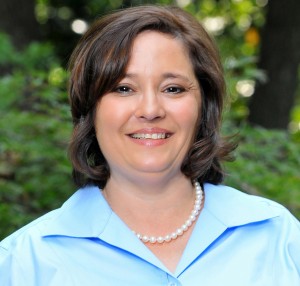The city of Dunwoody will create a task force to study workforce housing in the wake of similar efforts in neighboring cities, despite strong opposition from the mayor and some City Council members.
Four councilmembers — Lynn Deutsch, John Heneghan, Pam Tallmadge and Tom Lambert — agreed at the council’s Feb. 15 retreat the city should create the task force. Among the items the task force will look at are ideas that have been pitched in Brookhaven, Sandy Springs and other metro Atlanta cities on ways to ensure affordable housing options are available.
Who will serve on the task force and when it will be created remains to be seen, according to Mayor Denis Shortal.
During a presentation at the council retreat, workforce housing was defined as being 80 percent of the area median income. It can also be defined by profession, such as teachers, police officers, firefighters, nurses, construction workers and retail workers.
“I’m concerned about redevelopment … of certain properties and when that happens rather than us handle it on the fly, it’s better that we are prepared,” Deutsch said. “This is important to me. I’d like the people who work in our community to live in our community. And it helps with traffic.”
Shortal immediately blasted the idea of the city looking into workforce housing, comparing what Deutsch was discussing to public housing complexes in such cities as St. Louis, Mo., and Chicago.
“They are all failures,” Shortal said. “In St. Louis, they built multi-story brick buildings and then bulldozed them all down.”
“This is not public housing!” Deutsch said to Shortal, visibly frustrated.
Public housing is government-owned property created for low-income people. Affordable and workforce housing can be defined by a policy that provides incentives to developers to provide units with cheaper rents, for example.
“What you’re talking about is the entire complex,” she told Shortal. “The government is not involved [in workforce housing]. This is just looking at having a policy that when you redevelop some criteria is to include workforce housing.”
Councilmember Terry Nall said at the retreat he was “totally opposed” to any idea of the city addressing workforce housing beyond some assistance already offered to police officers.
“We have a subsidy for city employees. We can raise the subsidy. That’s how we help workforce housing,” he said. “I don’t want to see us spend any time on this. I want to stick to the basics of what we do as a city.”
Currently, 12 officers in the Dunwoody Police Department take advantage of the city’s $500 a month housing subsidy to be used to live in the city.
Salaries for Dunwoody Police officers start in the $41,000 a year range. There are 54 officers on the force now, with 59 positions authorized. As part of their employment, the officers drive their police vehicles to their homes within or outside the city limits.
Councilmember Jim Riticher also criticized Deutsch’s idea, saying it would lead to rent control – when the government steps in and caps what a landlord can charge for rent.
“This is a step in that direction,” he said. “How do you verify eligibility and ongoing eligibility. How do you enforce or verify on an ongoing basis?”
Addressing affordable and workforce housing is not new in the suburban market. The city of Brookhaven’s Affordable Housing Task Force came up with recommendations last year for the City Council amid discussion about the redevelopment of apartment complexes, especially along Buford Highway. The city is currently undertaking a citywide zoning rewrite and is looking at possible ways to implement some of those recommendations, including offering incentives to developers to provide affordable units.
Sandy Springs is in the midst of forming a task force to look at affordable housing strategies and has a new zoning code that offers multifamily housing developers higher density allowances in exchange for various amounts of affordable units.
Atlanta City Councilmember Andre Dickens recently reached out to Dunwoody and Sandy Springs officials about creating a coalition of cities to lobby the state legislature to make affordable housing a priority at the state level.
In Dunwoody, the issue of workforce housing was also discussed during a recent Planning Commission meeting when Chair Bob Dallas brought up the issue of inclusionary zoning. Inclusionary zoning is typically an ordinance that requires a developer to include a certain number of units for lower income residents.
“The issue is not addressed in our zoning code and I think it’s appropriate to have a conversation about what we want our zoning code to look like,”
Dallas said in an interview. “As areas gentrify and new development is being planned, is this issue a conversation the city wants to address?”
“What does the community want … and can we have a zoning code that reflects the values of Dunwoody?” he said. “This conversation is not easy, but necessary.”



Dunwoody seems to be following Sandy Springs-fine , if you want a city of angry, long-term residents who are increasingly frustrated with activist city government officials.